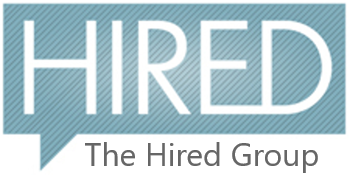By JACQUELYN SMITH Business Insider Staff

Most hiring managers will at some point pop the dreaded interview question: “What is your biggest weakness?”
Asking this is similar to sifting through resumes looking for a reason not to hire an individual, says Lynn Taylor, a national workplace expert and the author of “Tame Your Terrible Office Tyrant: How to Manage Childish Boss Behavior and Thrive in Your Job.”
“The underlying question translates to: ‘Is there anything I’m missing that could eliminate you from the running?'” she says. “Since the question has a negative slant, it’s designed first to test your mettle, and second, your character. This is why it can be a deal maker or breaker, depending on whether you handle it with thought.”
Ryan Kahn, a career coach, founder of The Hired Group, and author of “Hired! The Guide for the Recent Grad,” says this type of questioning accomplishes two things: “In addition to potentially revealing any professional weaknesses that may derail a candidate, it also provides insights into if that person is of a mindset of continual improvement.”
Here’s what hiring managers really want to know when they ask about your biggest weakness:
They want to test your character. You want to be honest — but that doesn’t mean you should provide a laundry list of flaws. Also, remember that hiring managers can play back your answers to any references you provide, so your integrity may be measured after the interview is over, Taylor says.
They want to make sure you’re not a robot. Your interviewer will want to hear a prompt and thoughtful answer. Try to avoid using cliché answers to this question, like, “I’m too much of a perfectionist,” Kahn suggests.
You’ll want to think about your answer to this question beforehand so you don’t hem and haw — but be careful not to sound too rehearsed, Taylor adds.
They want to get a sense of your self-awareness. Your response should show the hiring manager that you objectively examine your own strengths and weaknesses.
They want to hear that you’re working to strengthen this weakness. “Answer the question truthfully, positioning it as a development area versus a weakness, and always include what steps you are taking to grow your strengths in that area,” Kahn says. HR representatives want to hire someone who is aware of their personal development areas and is actively taking steps to grow in these areas.
They want to see how you handle tough questions. Your response should not be overly general or flip, Taylor says. “Indicate that you have genuinely thought about your answer.”
Avoid saying, “I don’t know,” or, “Honestly, that is a tough question. I’m always doing my best.” And don’t give unrelated responses, like, “I have a weakness for fast food.”
They want to see you keep your composure. You’ll need to demonstrate an ability to keep your cool when put on the spot with a tough question like this one, just as you’ll do on the job.
They want to hear something positive. “If you can incorporate a positive thing about yourself into the response, that’s even better,” Kahn says.
A good answer might be something like: “One area that I’m continually trying to improve is prioritization. I’m someone who likes to gain lots of new experiences and work with new people, so I tend to say yes to too many projects and that’s created some issues for me in the past. I’ve been working on growing my project management and prioritization skills to make sure that whenever I take on something new, I’m confident I can meet deadlines and turn in work at the level of quality I expect from myself.”
They want to know your weakness won’t affect your performance. “Read the job description carefully in advance; you don’t want to inadvertently play up a weakness that collides with requirements,” Taylor explains. However, if your weaknesses would impair your ability to perform well in this role, know that it might not be the right job for you.

Recent Comments